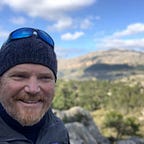Do we need deeper questions, rather than limiting answers and solutions?
First published in Gaia Education’s newsletter, Spring 2015
Among the most powerfully transformative aspects of the Ecovillage Design Education (EDE) curriculum are the design studios that encourage participants to apply what they have learned in the co-creation of a specific project design. In these sessions we move from exploring a series of best practices and processes to applying them in collaboration. We move from introducing generalized solutions to deeper questioning as we explore how to co-create elegant solutions adapted to the uniqueness of place and culture.
The most effective skill participants learn from Gaia Education’s whole
systems design approach is how to ask better, deeper, and more systemic
questions. It is this ecologically, economically and socially literate
questioning, combined with the even deeper inquiry into values and
meaning invited by the worldview dimension, that can most effectively be transferred to the participants’ home communities. No matter where they choose to apply what they learn, simply by asking deeper questions in their communities or at their work place, participants become culturally creative change agents. [Note: the 2017/18 online course in ‘Design for Sustainability’ starts in late October.]
Humanity seems to be obsessed with quick answers and silver bullet solutions (ideally the on-size-fits-all kind). Yet a brief reflection on history shows us — more often than not — that yesterday’s solutions turn into today’s problems. Why should our “sustainable solutions” not also turn out to be transitory? Some might even turn out to have unexpected negative side effects if applied at the wrong scale or without attention to constantly changing circumstances. Solutions and answers are temporary means to ask better questions. As participants in a constantly transforming and evolving whole, we have to be ready to transform our cultures and ourselves.
We need to go beyond only being sustainable — “100% less bad” as Bill McDonough puts it. In ‘Shifting our Mental Models’ Bill Reed highlights that we need to un-do the damage done already, wherever possible. We need to move from ‘design for sustainability’ to restorative and reconciliatory design, and beyond that to regenerative design (see Reed’s graph blow).
To design as Nature and create regenerative cultures requires us to question deeply into our mental models about the relationship between nature and culture.
Would the appropriate cultural compass to pass on to communities everywhere not better take the form of a series of questions and a deeper process of inquiry, rather than a long list of definite answers and permanent solutions?
The seed for my forthcoming book on all this was planted when I interviewed David Orr in late 2006 and he answered my question about the role of spirituality and the sacred in the transition ahead as follows:
“Before we can appropriately answer the questions after the how and what of creating a sustainable human culture, we have to ask ourselves a much more difficult question: Why is humanity worth sustaining? This will trigger a deeper inquiry into Who are we? Where do we come from? What are we? Where are we going? To whom are we obliged?”
David W. Orr
My hope is that Designing Regenerative Cultures will support all of us in our work as educators and cultural change agents. Let’s continue living the questions together.
Daniel Christian Wahl works internationally as a consultant and educator in regenerative development, whole systems design, and transformative innovation. He holds degrees in biology (Univ. of Edinburgh / Univ. of California) and Holistic Science (Schumacher College) and his 2006 doctoral thesis (Univ. of Dundee) was on Design for Human and Planetary Health. He was director of Findhorn College between 2007 and 2010, and is a member of the International Futures Forum, a fellow of the RSA, a Findhorn Foundation Fellow and on the advisory council of the Ojai Foundation and the Ecosystem Restoration Camps Foundation. Daniel’s clients have included UNITAR (with CIFAL Scotland), UK Foresight (with Decision Integrity Ltd), Ecover (with Forum for the Future), Bioneers (with the Progressio Foundation, and with the Findhorn Foundation), the Dubai Futures Foundation (with Tellart), The Commonwealth Secretariat (with Cloudburst Foundation), Gaia Education, the Global Ecovillage Network, the State of the World Forum, Balears.t, Camper, LUSH and many educational NGOs, universities, and design schools. He is co-founder of Biomimicry Iberia (2012), and has been collaborating with ‘SmartUIB’ at the University of the Balearic Islands since 2014, and worked part-time as Gaia Education’s ‘Head of Design & Innovation’ since 2015. His recent book Designing Regenerative Cultures, published by Triarchy Press in the UK in May 2016, has already gained international acclaim, and his blog on Medium has a large international following.
